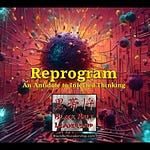“In space, no one can hear you scream.” This well-known phrase from the movie trailer for the 1979 sci-fi thriller, “Alien,” highlights a basic scientific principle. Sound needs a medium, like air, to travel. Space is essentially a vacuum, so sound doesn’t transmit in space.
Without air particles to vibrate, sound cannot travel through space.
The absence of sound is silence.
In ancient times, silence was often associated with contemplation or meditation. Silence was also an integral part of religious reverence or paying homage to a deity. In ancient Greece, philosophers considered silence to be a virtue, emphasizing the value of thoughtful consideration before speaking or the potential of silence to reveal more than words.
During the Renaissance, we saw a renewed interest in the philosophy of human potential. The philosophy of the teachers of this era was to affirm the ability of individuals to lead moral, ethical lives through reason and logic. This led to a more nuanced understanding of silence as a way to express complex emotions and ideas through literature, art, and music.
Leonardo da Vinci, one of the leading voices of this era, noted, “Nothing strengthens authority so much as silence.”
The Enlightenment Era introduced the world to Romanticism. This was a powerful artistic, literary, and intellectual movement that flourished in Europe and later in the United States during the late 18th and early 19th centuries. Romanticism emphasized individual emotion, imagination, along with the beauty of nature and the sound of silence.
The 20th century brought with it the rise of mass media, starting with radio and later television. Toward the end of the century, we witnessed the birth of the Internet and social media. Silence became something to be filled with music, commercials, and sound effects. Silence was devoted to a “moment” or part of a religious service.
Sound became noise, permeating every facet of our lives. Silence was something to be filled with something, anything, rather than something to be valued and appreciated.
In response to this, William Burroughs noted, “Silence is only frightening to people who are compulsively verbalizing.”
Today, there is a longing to escape the hustle and bustle, the noise of life, and find places of solitude where the sound of silence can be heard, valued, and appreciated. In our anxious, stress-filled culture, people are rediscovering the power of silence as a therapeutic tool to gain a sense of peace, calmness, and tranquility.
There’s also a practical benefit to silence. Over the years, it has prompted a number of interesting and (at times) humorous insights.
Abraham Lincoln famously said, “It’s better to remain silent and be thought a fool than to speak and remove all doubt.”
Muhammad Ali observed, “Silence is golden when you can’t think of an answer.”
Josh Billings noted, “Silence is one of the hardest arguments to refute.”
Martin Luther King Jr. said, “In the End, we will remember not the words of our enemies, but the silence of our friends.”
These men understood the sound (and the power) of silence.
Silence is a sound.
Don’t believe me?
Ask Julian Treasure.
Julian Treasure is a five-time TED speaker, with over 150 million views of his signature talks. He is one of the most sought-after global speakers on sound and communication. His insights into speaking, and more importantly, listening, make him one of the top trainers in the world. Julian reminds his audience of a simple but profound truth:
“Without the gaps between the words, conversation is nothing more than endless noise.”
Silence is a sound.
Silence gives us an opportunity to reset, refocus, and recalibrate. It gives us time to process, reflect, consider, contemplate, evaluate, analyze, and extrapolate.
Silence provides us with an opportunity to understand.
We’ve all been around people who can’t stop talking. They drone on for what seems like hours, spewing an endless parade of words, without ever seeming to come up for air. Try as we might, we can’t seem to make sense of what they’re saying, as it becomes (in the words of Julian Treasure) nothing more than endless noise.
We wait for that pivotal moment when they finally pause, take a breath, and give us a chance to process, to respond, or to excuse ourselves from the conversation.
Sometimes, our ears (and our brains) need a break.
Silence gives our physical senses (and our thoughts) a respite from the endless noise that surrounds us, engulfs us, and (at times) overwhelms us throughout the day. It provides us with a moment of peace and tranquility where we can be at one with our thoughts.
It’s in silence that we have the opportunity to come face-to-face with ourselves.
Silence is an intentional act. It’s a choice we get to make.
In his training series, “How to Speak So That People Want to Listen”, Julian Treasure notes that one of the benefits of silence is the opportunity to savor life. Silence gives us a respite from the endless noise around us to savor a cup of coffee or tea, appreciate the taste and texture of a favored food, or enjoy someone’s company without having to say a word.
It’s in silence that we connect with our thoughts.
I believe there is a lesson that life wants to teach us every day. The problem for most of us is that we never take a break from the endless noise around us to listen to life as it speaks. Silence can provide us with a chance to listen to the whisper of life as it seeks to reveal its secrets and its wisdom to our lives.
Silence has a voice,
It can communicate as effectively as words, often conveying deeper meaning and insight than spoken words. Silence highlights the importance of not just listening with our ears, but also listening with our hearts to understand messages that remain unspoken.
Silence can transport us to a place where we can hear our own inner voice, connecting us with our intuition. This allows for introspection, reflection, and self-discovery. It can turn a moment into a learning experience, transforming our lives in a meaningful way.
Silence can create a meditation zone where we also connect with ourselves and become one with our own thoughts,
In religious circles, silence creates a moment where we can meet our Maker, experience His presence, hear His voice, and commune with our Creator. Some have said that it is in silence that we breathe God, connecting with His divine presence and growing deeper in our faith.
The Psalmist wrote in Psalm 46:10, “Be still and know that I am God…”
In silence, we can obtain direction and guidance, and discover our purpose for being.
Author Gary Chapman is known for his classic book, “The Five Love Languages,” where he outlines the five ways we express love to others. These include words of affirmation, quality time, receiving of gifts, acts of service, and physical touch. A growing number of human behavior experts believe there is a sixth love language that is often overlooked or ignored.
The sixth love language is Silence.
Silence can be a powerful and meaningful love language, particularly in relationships where comfort, ease, and shared experiences are valued. It can be a way to show respect for boundaries, provide emotional support without words, or simply allow for a comfortable space for connection.
Silence can be powerful, but it can also be awkward.
Our brains are wired to interpret social cues. When those social cues are absent, we can experience uncertainty and become anxious. As humans, we often interpret silence as disinterest, confusion, or disapproval. Silence can amplify our internal thoughts and feelings, making us feel uncomfortable.
So what do we do?
We rush to fill the void of silence with chatter, more endless noise.
Embracing silence allows for critical thinking, emotional processing, and can lead to fostering a deeper connection with those around us.
Silence is beneficial to our physical, mental, and emotional health.
Silence can help with stress reduction. It helps calm the nervous system, reducing stress hormones like cortisol and adrenaline and releasing positive “feel good” endorphins. This, in turn, can help to lower our blood pressure, a major contributor to heart disease, as well as promote better and more restful sleep, allowing our body to repair itself.
Practicing silence can quiet the mind, leading to better concentration and focus. This promotes mental clarity and boosts our productivity. It also serves as a powerful catalyst for creative thinking, as it allows for self-reflection. In silence, we can explore new ideas.
Silence also encourages mindfulness, promoting self-awareness and a deeper connection with our thoughts and feelings. This can promote a general sense of well-being, lowering our stress and anxiety levels, and boosting our mood at the same time. Silence can reduce muscle tension and improve overall physical well-being.
Embracing silence can lead to a sense of inner peace and tranquility, providing a respite from the constant noise and distractions of daily life.
Recent research suggests that spending time in silence can also stimulate brain cell growth, particularly in the hippocampus, a region of the brain associated with learning and memory. Silence allows our brain to process information more efficiently, to think more clearly, and to communicate more effectively.
As Julian Treasure also points out, silence can enhance communication by allowing for more thoughtful and meaningful interactions.
And you thought that silence was simply the absence of sound.
Silence is a sound.
It’s experienced as a distinct auditory event.
It amplifies our internal thoughts, feelings, and emotions.
We experience silence in a way that’s distinct from the absence of sound. This experience can even affect our perception of time.
It’s in silence that we often truly hear, becoming intimately aware of the world around us. In silence, we become one with our thoughts, gain a greater and deeper understanding of the world around us, and experience more peace and tranquility in our lives.
Embrace the sound of silence, for it is there you have the opportunity to reset, reflect, and recalibrate your life, and experience more success in every area of your life.











Share this post